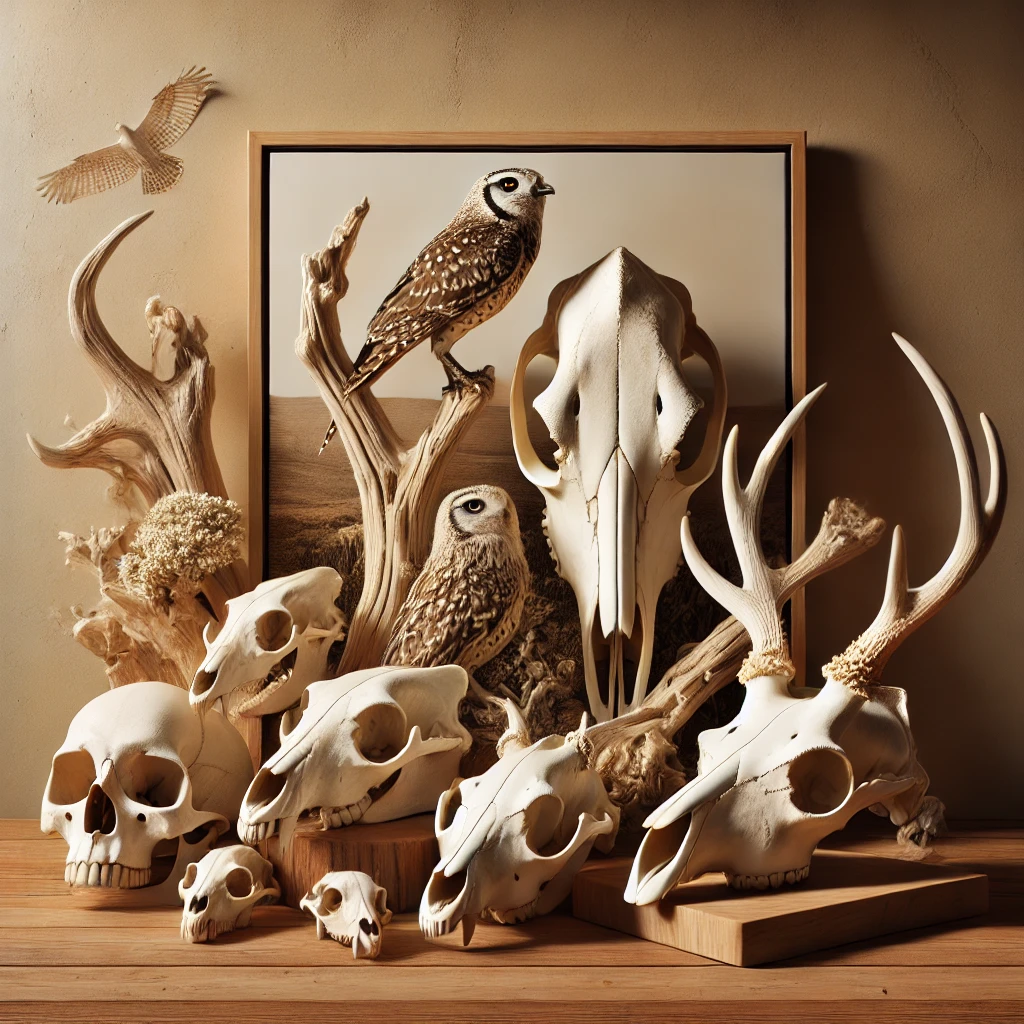Introduction: The Rise of Ethical Bone Sourcing
In the ethical luxury market, the demand for ethically sourced bones and skulls is growing. Collectors, artists, and educators now seek specimens that respect animal welfare and the environment. Ethical sourcing minimizes harm by adhering to strict guidelines on origin, legality, and sustainability, setting it apart from traditional practices in the bone trade.
Table of Contents

Sustainable Sourcing: Practices and Benefits
Ethically sourced bones come from a variety of responsible sources. Some of the most common include:
- Natural Deaths: Animals that died naturally, providing an organic source for bones.
- Roadkill Collection: Reclaimed from animals involved in accidents, often in collaboration with conservation authorities.
- Conservation Programs: Some specimens are sourced as part of conservation efforts for species control, helping balance local ecosystems.
Each of these sources ensures that no animals are harmed for the purpose of collecting their bones, making them a suitable option for collectors who value environmental impact and humane practices.
Responsible Suppliers in the Ethical Bone Trade
A few key suppliers emphasize ethical standards in the bone trade:
- Kaotik Wildlife: Committed to fostering creativity through nature, Kaotik Wildlife ethically sources bones to inspire artists and educate the public. The organization adheres to strict standards, ensuring all specimens are obtained sustainably.
- SkullStore: Based in Toronto, SkullStore is among the largest suppliers of ethically sourced bones. As the official gift shop for the Prehistoria Museum, SkullStore sources specimens responsibly and educates customers on conservation-focused collection practices.
Verifying Ethical Sourcing
To ensure you are purchasing ethically sourced bones, consider the following:
- Research Supplier Backgrounds: Reliable suppliers are transparent about their sourcing methods and environmental impact.
- Confirm Legal Compliance: Ethical suppliers adhere to all local and international wildlife trade regulations.
- Support Conservation-Focused Vendors: Many vendors dedicate part of their profits to environmental causes, supporting wildlife and biodiversity.
Conclusion: Making an Ethical Impact
Choosing ethically sourced bones contributes to the preservation of ecosystems and supports businesses prioritizing sustainability. By consciously choosing ethical sources, collectors and creators help preserve natural history while fostering a deeper appreciation for wildlife and art.
Ethical bone sourcing offers a way to enjoy natural history responsibly, turning each item into not just a collector’s piece but a symbol of commitment to the environment.
For a deeper understanding of ethical sourcing practices and a variety of responsibly sourced specimens, you may find it helpful to visit Kaotik Wildlife’s Ethically Sourced Bones Collection or explore the extensive range at SkullStore’s Sustainable Specimens, both of which provide transparent sourcing and support conservation efforts.
Share this content:
